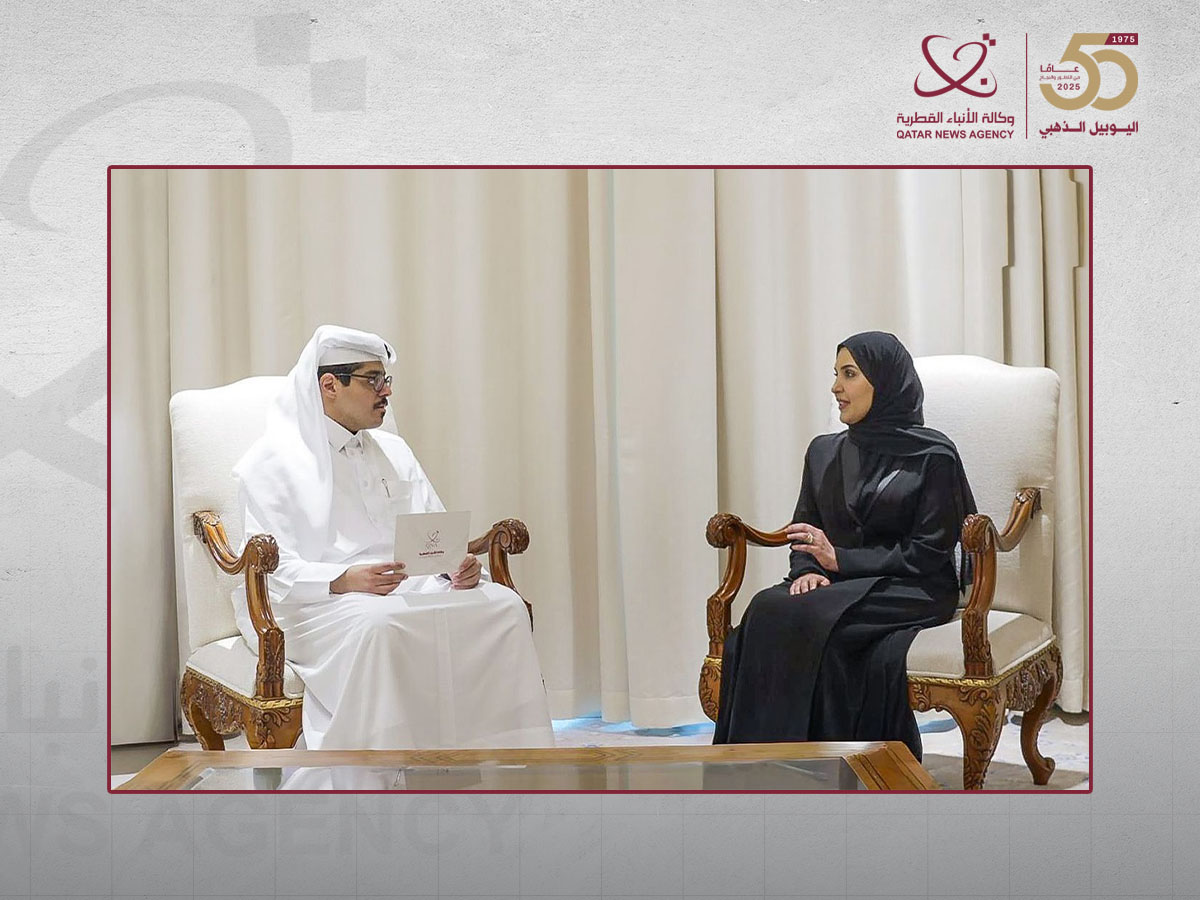United Nations/ Chairperson of NHRC to QNA: Our Broad UN Partnerships Contribute to Building More Just Societies
By Israeli Gunfire
Copyright qna

HE the Chairperson of NHRC expressed her confidence that the Committee will be able to maintain this classification for the fourth consecutive time, based on its fulfillment of all accreditation requirements that qualify it for this classification, including financial and administrative independence, transparency, and the consistent publishing of annual reports on the state of human rights in the country.
She added that they work under a leadership that firmly believes that promoting and protecting human rights is a strategic choice. This has contributed to Qatar’s adoption of many legislative measures related to enhancing and protecting human rights, most notably Law No. (12) of 2015, which granted the Committee independence and surrounded it and its members with legal immunities and guarantees, to enable it to perform its duties and tasks with freedom and transparency, HE explained.
She pointed out that Qatar is an active member of the United Nations Human Rights Council and plays an important role in promoting the council’s tasks, which include reinforcing global respect for human rights values and fundamental freedoms without discrimination and effectively confronting human rights violations worldwide.
She pointed out that, in recognition of the Committee’s efforts within the Human Rights Council, Qatar was voted as a council member for the period 2025-2027 with the support of 167 countries, in elections held at the UN General Assembly in 2024, which confirms the international community’s confidence in Qatar as an active member and key partner in the global human rights advancement journey.
Regarding human rights achievements in the country, she explained that Qatar has made clear and tangible progress in human rights and presented many accomplishments nationally in the context of its international human rights commitments, including aligning national legislation with international treaties ratified by the state, as well as regional and international leadership and achievements.
She highlighted the tangible progress reflected in public life in Qatari society in terms of fundamental human rights, starting with the quality of healthcare and education, ensuring a decent life for families and all social groups, as well as legislative developments protecting the right to work, which have noticeably contributed to enhancing a safe and fair work environment. This explains the decline in the rates of petitions and complaints reported in the annual reports of the National Committee for Human Rights in the country, she noted.
She also pointed to some challenges faced by countries, notably those posed by the rapid pace of digital development, which is one of the most important issues threatening freedom and privacy. She explained that the use of technology and the internet has led to the collection of huge amounts of personal information, requiring serious and prompt handling by the international community.
In this context, Her Excellency Maryam bint Abdullah Al Attiyah emphasized the role of governments in addressing these challenges by adopting laws and policies that protect privacy and fundamental freedoms online, regulate the use of personal data, and monitor communications fairly and transparently. She praised the amendments to some provisions of Qatar’s Cybercrime Law and expressed appreciation for the efforts of various national concerned entities.
Regarding the positive impacts of Qatar’s role in mediating conflict resolution on human rights, she said that they follow the significant achievements of the state in establishing global peace, noting that Qatar has taken the initiative and leadership in mediation efforts, becoming a primary destination for conflict resolution as well as contributing to joint efforts in different geographical areas.
Referring to Qatar’s successful mediations over more than two decades, she affirmed that Palestine has been and remains a central cause for Qatar and the Arab and Islamic nations.
She noted Qatar’s ongoing efforts to stop the current Israeli war on Gaza in cooperation with its partners (Egypt and the United States).
She emphasized that these efforts are not new but a continuation of Qatar’s successful roles in previous years, expressing hope that the current efforts with partners will lead to a ceasefire, end the war on Gaza, and establish peace in the region.
HE Chairperson of NHRC pointed out that Qatar’s efforts to promote peace extend beyond mediation, as the country also sponsors and hosts many international and regional conferences and forums to promote dialogue and understanding between nations and peoples.
She highlighted in her statements to QNA, the prominence of human rights issues in the speeches of HH the Amir Sheikh Tamim bin Hamad Al-Thani during the annual sessions of the United Nations General Assembly. She said those speeches address human rights in all their aspects, pointing out to how His Highness emphasized the rights of the Palestinian people and drew global attention to ongoing Israeli violations, in addition to his calls for cooperation and partnership to stop conflicts and wars in the region and the world.
She added that HH the Amir’s speeches represent protection and promotion of human rights worldwide, and he is keen to translate words into actions. This is evident in Qatar’s pioneering role in mediations to establish global peace and launch initiatives concerned with peace and development, she said.
She concluded her statements by calling on the participants in the 80th session of the United Nations General Assembly to consider how the UN is keeping pace with current challenges, stressing that it is time for review and reflection on whether the UN is moving in line with the goals it was founded on 80 years ago.
She also questioned the UN’s 80th initiative regarding what is happening in Palestine now, since it is an initiative to improve the UN’s impact and effectiveness, promote peace, sustainable development, and human rights for all. Does this initiative address the double standards that have turned human rights into a political banner? Or will the UN take its legal and moral responsibilities towards a world exhausted by wars and where human dignity has been lost?”
Her Excellency Maryam bint Abdullah Al Attiyah pointed out that these questions are not seeking ready-made answers but are meant to encourage serious and persistent work to reexamine the effectiveness of the UN system and activate its role to serve all humanity. (QNA)



